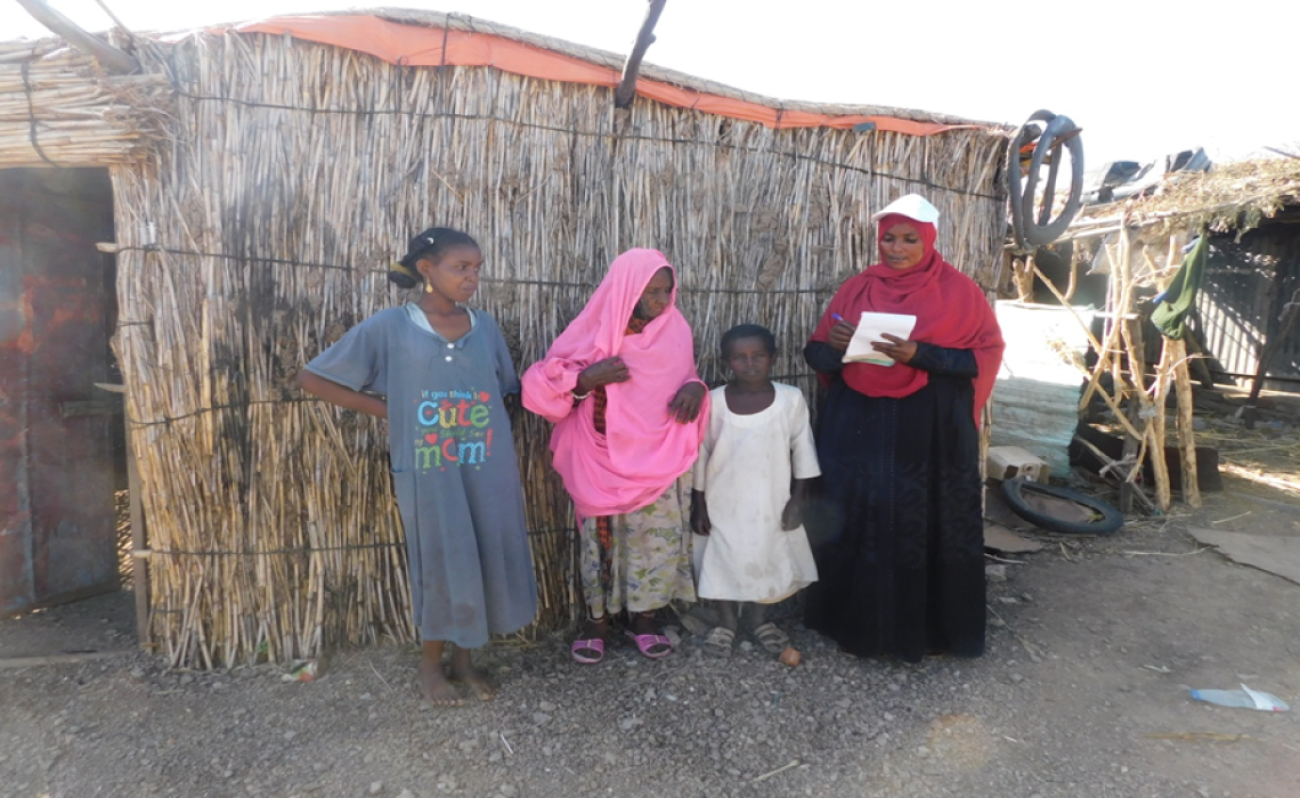Keeping children in schools in Eastern Sudan

The improving access to quality education and protection for out-of-school children with a focus on girls is a UNICEF project that is keeping children learning
Reem Abbas
Despite several challenges this year, the UNICEF-led school enrolment campaign for children has been very successful in Gedarif State, in eastern Sudan. The campaign was also an opportunity for UNICEF and Ministry of Education to mobilize the communities to send and keep children in schools.
“We engaged all communities, neighbourhood-based communities, women committees and community leaders. And they helped us tremendously with the registration process," says Yahya Adam, a coordinator from the Ministry of Education and Guidance in Gedarif State, who was part of the team that worked on the school enrollment campaign.
But a successful enrolment campaign can also be a burden, as the large number of registered children must be absorbed into the school system. Communities across the state are stepping up to be part of the solution, with some opening Alternative Learning Programme (ALP) classrooms through fundraising with UNICEF to provide learning supplies, training of teachers and learners textbooks.
Improving access to quality education and protection for out-of-school children with a focus on girls
Since 2018, UNICEF has worked with the Federal Ministry of General Education to implement its Education Sector Strategic Plan (2018–2023) towards achieving education for all and realizing Sustainable Development Goals (SDGs) 4 and 5. This specific project – Improving access to quality education and protection for out-of-school children with a focus on girls – aims to increase access to learning and life skill opportunities and realize the protection for at least 16,000 children aged 6 to 14 in Eastern Sudan.
The project targets sixty disadvantaged communities across all three states of Eastern Sudan, Kassala, Red Sea and Gedarif, considering their low school enrolment and high dropout rates.
The project has so far targeted 30 schools with functioning ALP centres in some of the most vulnerable communities, using a whole child approach. This approach leverages UNICEF experience across different programmes to provide children and their communities with integrated services across education, water and sanitation and child protection.
Ninety (90) ALP facilitators were trained on ALP curriculum delivery and another 40 teachers on child-centred teaching methodologies. The trainings built the capacity of participants in classroom management, COVID-19 safety and prevention measures for children and participatory teaching methodologies.
The ALP is an alternative venue of learning for children and adolescents who missed the opportunity to join schooling or have left the official school system at some point, including children affected by emergencies and conflict.
Sudan has increased the Gross Enrolment Ratio (GER) for basic education from 71.1 to 73.5 per cent between 2009 and 2018, with UNICEF and partners increasing efforts to achieve and sustain Universal Primary Education (UPE) and Education for All (EFA).
“The GER in basic education has been stagnant around 73% for several years due to structural issues in Sudan.The COVID-19 pandemic and the ongoing economic crisis have made progress difficult, but we understand the challenges and design the programmes factoring them in,” said Abdel Rahman El Rehiema El Dood, an Education Specialist at UNICEF Sudan.
The project is designed to get children into school or ALP and keep them learning. This is achieved through several ways.
“We invest in the school environment, community empowerment and in training teachers to make the school a better learning environment. We also invest in students by providing them with education supplies and school uniforms,” said Abdel Rahman.
Education supplies are crucial to lessening the burden of families facing a deteriorating economic situation. In addition to education supplies, UNICEF works with the World Food Programme (WFP) to provide nutritious meals for students.
In Eastern Sudan, the number of students starts decreasing from upper grades of 6,7 and 8, as boys drop out to support their families through employment and girls due to child marriage.
The project addresses these barriers impacting girls by raising awareness on the importance of education and advocating against child marriage through school activities.
“Engaging directly with the community is important because it gives us data on child marriage and this allows us to tailor our interventions to be specific to their challenges,” says Yahya.
Through this project, UNICEF reached 6,000 children in Eastern Sudan with essential supplies. UNICEF has so far provided 300 education kits to students and 60 kits to teachers as well as 60 recreation kits and 3,000 school uniforms. This in addition to 1,750 dignity kits which includes buckets, soap and menstrual hygiene management items including multi-purpose cloth and pads, for girls. Changed with below.
Through this project, 2,681 out of school children (54% girls) were enabled to access education in schools and ALP.
By the end of the two-year project, 16,000 vulnerable out-of-school children in Gedaref, Kassala, and Red Sea states, especially girls, will have increased access to quality education and life skill opportunities in child-friendly, protective environments in regular basic schools and ALP centres.
The improving access to quality education and protection for out-of-school children with a focus on girls project is only possible thanks to a generous contribution from the Government of Canada.

